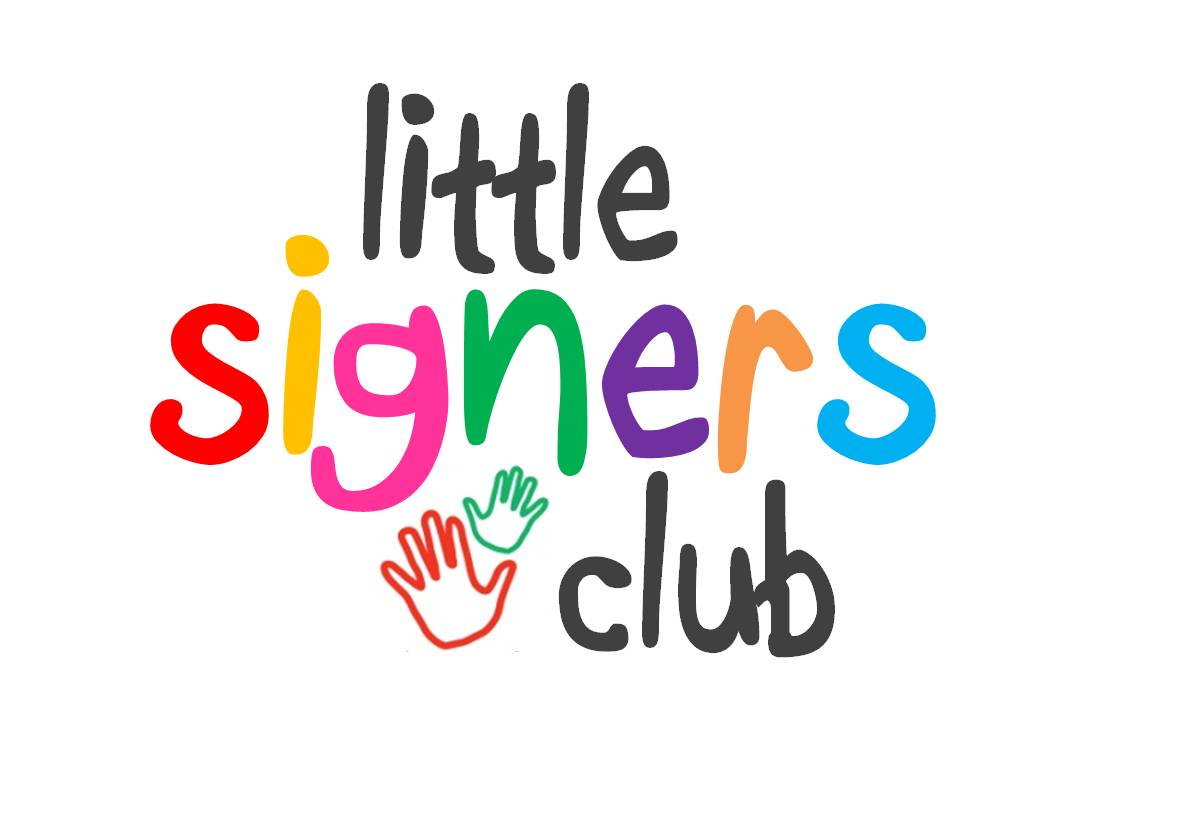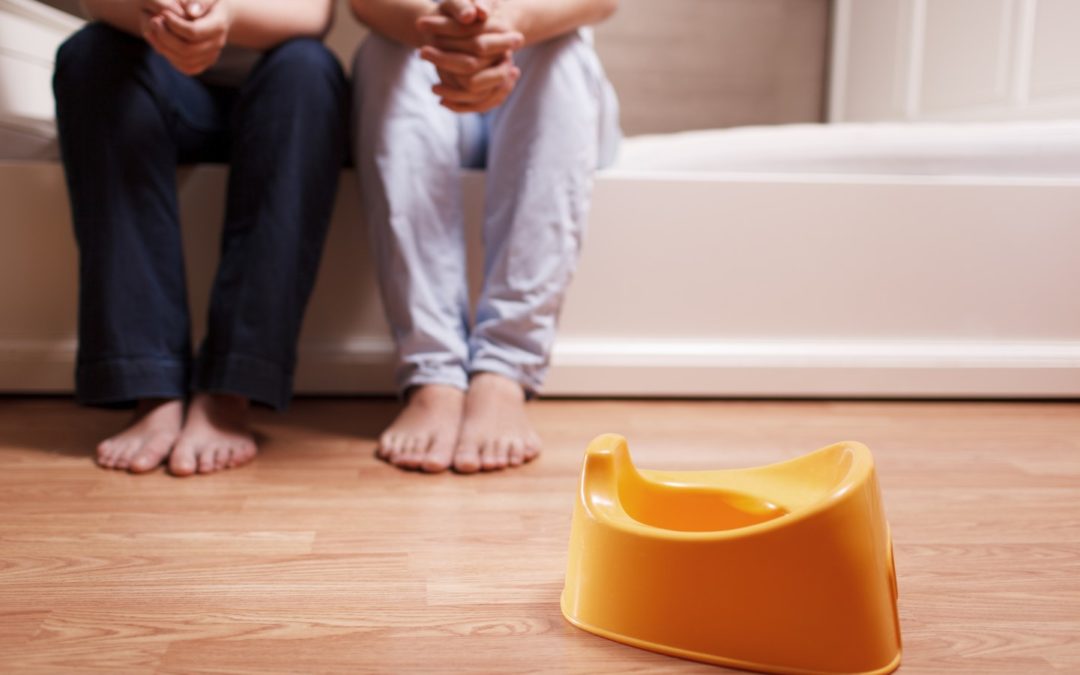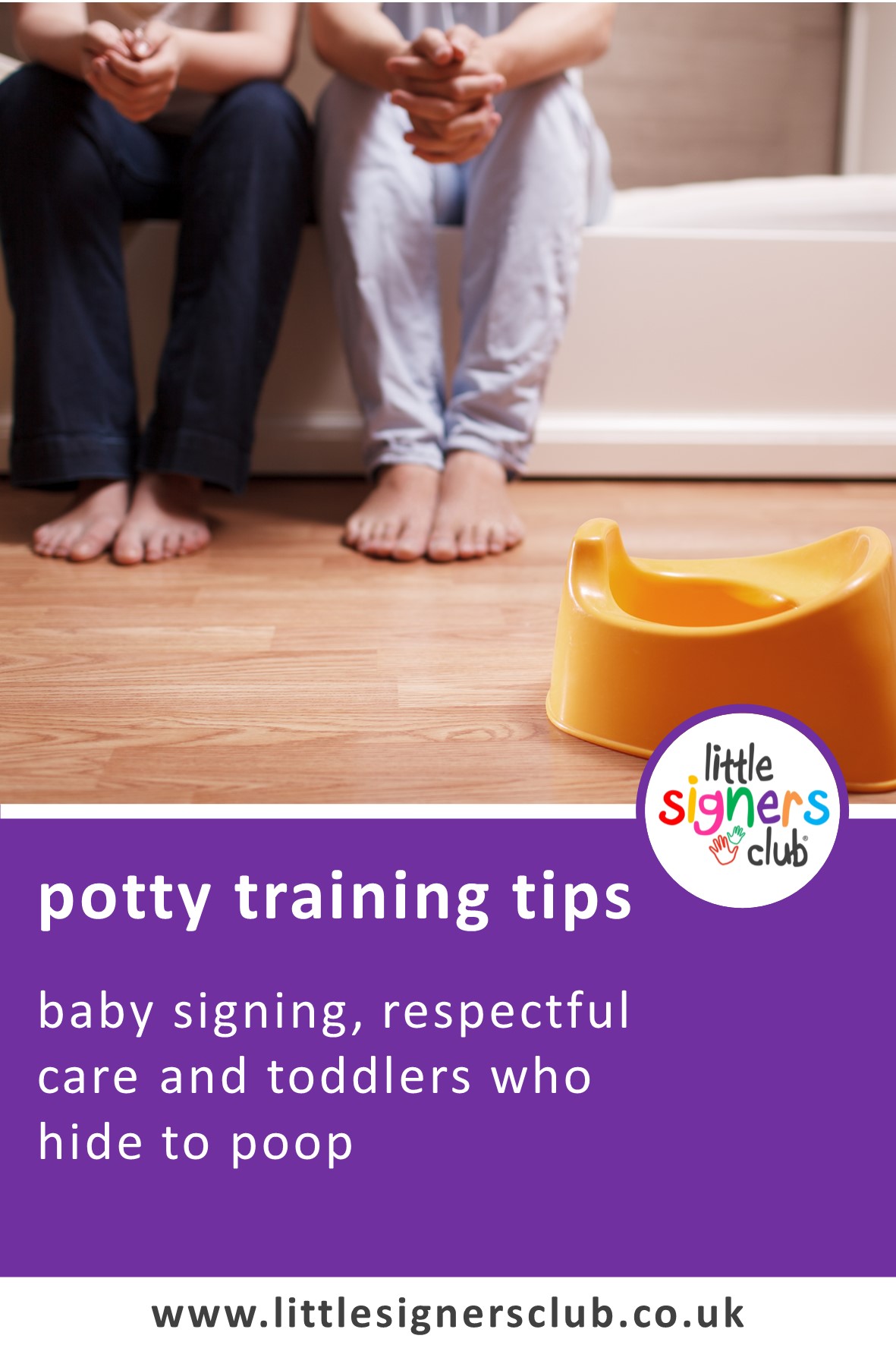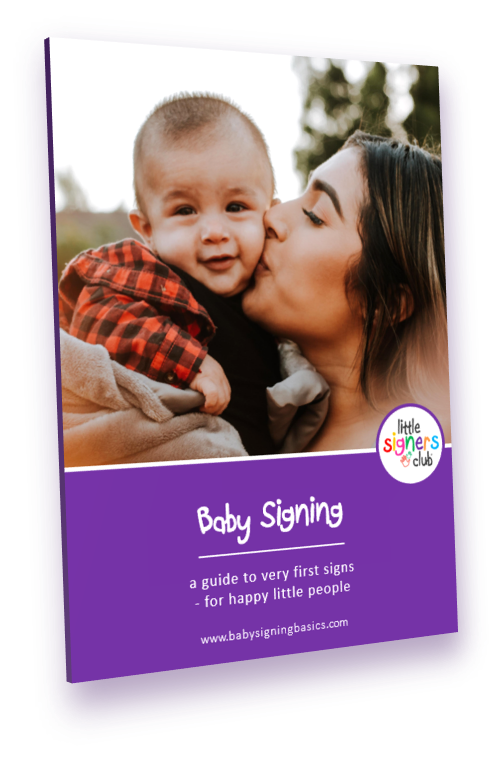Potty Training Tips | Why does my toddler hide to poop?
Why do our toddlers like to hide when they poop?
Little Signers Club Founder, Shelley, explores the connection between hiding, respectful care and why here at Little Signers Club we don’t sign ‘Poo’…
There are some things for which baby signing is just incredible – and elimination communication is definitely right up there. It is so empowering for your toddler (and babies too) and aids your little one in letting you know that they need the toilet, or to potty, that they need help right now – or maybe, even, that it hurts.
There is no fuss, just gentle and respectful communication that allows little ones to tell you what they need.
As our toddlers are still getting to grips with speech sounds, trying to articulate the right word, at the same time as the urgency of needing to potty, can lead to unnecessary stress, distress and accidents.
At the very end of the scale it can lead to feelings of shame that their efforts are not good enough – and refusal to try again.
Being able to sign for toileting, one of our most basic needs, gives children the confidence that they can be understood and responded to immediately, setting them up for success.
Needing to go to the toilet is a basic need, it isn’t something that we have much choice over, just like needing to eat or drink or sleep.
Needing to go to the toilet is a basic need, by which I mean that it isn’t something that we have much choice over, just like needing to eat or drink or sleep.
But one of the signs that we don’t tend to teach, here at Little Signers Club, is the sign for ‘Poo’.
But why NOT sign poo? Surely it’s helpful to do so?
Well, yes – and no.
Let me explain.
Something that comes up, quite often, as a worry is that small children ‘hold on’ to their poo. And a huge number of searches come up all around ‘why does my toddler hide to poop?’ They might run off and hide, prefer a nappy or simply won’t attempt to go.
And I wonder how much of this might be connected to our joking references during babyhood to ‘stinky bums‘, our facial expressions when changing a particularly pungent teething nappy and how we might sharply inhale as we turn away from eye contact with our little one.
Small children connect the reactions of grown-ups to their actions.
The sign for poo is one that requires a wrinkled nose (look of disgust) whilst waving your hand in front of your nose. Constant repetition of this look will reinforce the message that defecating is something to be ashamed of, that their needs are not pleasant to us, disgusting.
Small children connect the reactions of their grown-ups to their actions.
One of the many benefits of signing is that it promotes eye contact which is essential for bonding and close attachment; it lets a small person know that you see them, that they matter.
Toileting is a deeply intimate activity that requires absolute trust (and consent).
I cannot begin to imagine how distressing and confusing it may be to a little child to have that look cross the dearly loved face of a parent and seemingly directed at them – for something which is completely outside their control and for a task that they are absolutely unable to perform unaided.
Babies and toddlers are inherently social; they want to belong and to join in, to do things for themselves as much as possible.
But our little people get tired and discouraged.
Along the way, they learn that their determination needs gentle guidance and loving support.
Sometimes that support needs to be physical support; holding your Toddler on the toilet, for example, will help them to feel safe enough to eliminate. (No toddler could put into words the difficulty of trying to hold yourself on top of a toilet without a child seat, terrified of falling into the toilet, whilst being asked to have a wee, for example. And the ability to reach behind themselves to wipe their little bottoms, capably, is years away.)
How distressing and confusing it must be to a little child to have that look cross the dearly loved face of a parent and seemingly directed at them – for something which is completely outside their control and for a task that they are absolutely unable to perform unaided.
Being able to sign for toileting, one of our most basic needs, gives children the confidence that they can be understood and responded to immediately, setting them up for success.
But the sign for ‘Toilet’ is definitely enough to let you know that your little one needs the loo, right now!
I hope that you have found this helpful and perhaps given you something to ponder as you contemplate potty training with your little one.
That the sign for poo (and our many small, unintentional reactions around this most basic of needs) may cause unease and uncertainty in little children.
That our response may indicate to them that they are doing something that is not an accepted part of the social experience.
And that in the absence of any other guidance around necessary bodily functions, little ones simply don’t know how to respond – so instead small children run off and hide, refuse to potty – or become distressed when needing to do a number two.

Shelley
Founder | Speaker | Author | Chief Bubble Tester | Mum
Shelley is the founder of Little Signers Club and has been teaching little ones, and their grown ups, how to use sign language for accelerated communication and understanding since 2005.
Kindly regarded as an expert in her field, Shelley regularly contributes to Childcare Expo, has been featured on BBC1, BBC Radio, in Junior Magazine, Gurgle Magazine, and was a contributing author for ToddlerCalm; A Guide to Calmer Toddlers.
She has three children of her own and, when she is not sharing her love of baby signing with the world, can be regularly found toasting marshmallows over a campfire.







